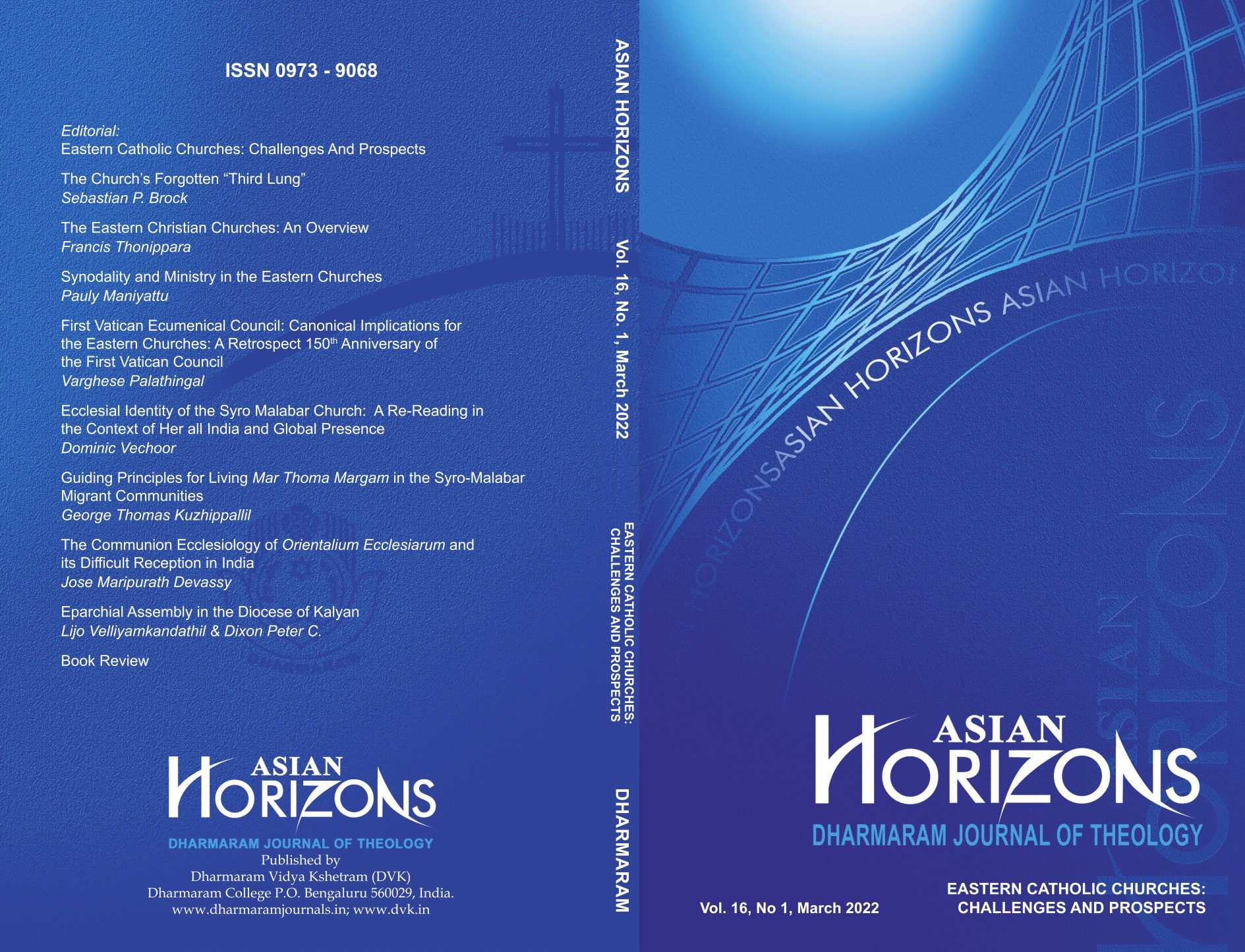First Vatican Ecumenical Council: Canonical Implications for the Eastern Churches: A Retrospect 150th Anniversary of the First Vatican Council
Keywords:
Canon Law; Eastern Churches; Ecclesiology; First Vatican Council; Infallibility; Papal Primacy; Self-GovernanceAbstract
The article examines the First Vatican Council (1869–1870), convened to address challenges posed by rationalism, liberalism, and modernity, while reaffirming papal primacy and infallibility through Pastor Aeternus and Dei Filius. Interrupted by the Franco-Prussian War, the Council’s abrupt suspension left unresolved debates on ecclesiastical governance, particularly for Eastern Churches advocating self-rule. Contrasting the centralized authority emphasized at Vatican I, the Second Vatican Council (1962–1965) embraced unity-in-diversity, recognizing Eastern Churches’ autonomy and traditions. Post-Vatican II reforms codified this shift through separate codes for Latin and Eastern rites (1983 CIC, 1990 CCEO), affirming sui iuris Churches’ rights to preserve liturgical and disciplinary heritage. The article highlights the theological evolution from hierarchical centralization to a communion-based ecclesiology, underscoring the Eastern Churches’ restored legitimacy in India and global Catholicism.

